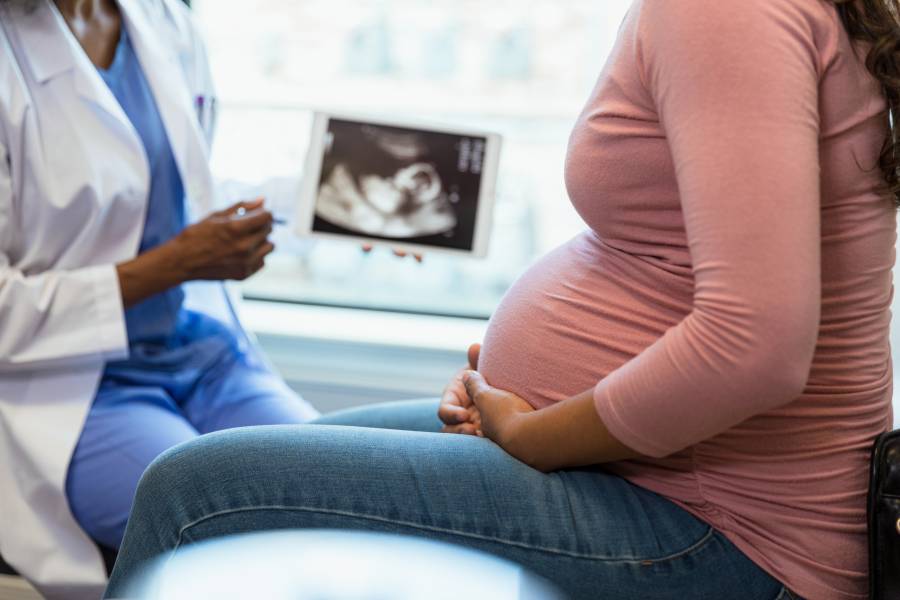UAMS, Community Health Centers of Arkansas Awarded $17.5 Million to Study, Reduce Prenatal Inequities
| FAYETTEVILLE — A study at the University of Arkansas for Medical Sciences (UAMS) and Community Health Centers of Arkansas, Inc. (CHCA) has been approved for a $17.5 million funding award by the Patient-Centered Outcomes Research Institute (PCORI) to study and reduce prenatal inequities.
Arkansas is ranked worst for both maternal health outcomes and food insecurity among U.S. states and has the third highest infant mortality rate. Arkansas also has the second highest prevalence of overweight or obesity among women in the U.S., with about 65% of women in Arkansas being overweight or obese when they become pregnant. These women are at greater risk of excessive gestational weight gain and its associated complications.
A healthy diet during pregnancy promotes healthy weight gain; however, many pregnant women do not have access to such healthy foods as fruits and vegetables, lean proteins and whole grains. This is especially true for low-income, rural and food-insecure women who face financial and transportation barriers.
The goal of the proposed study, “Delivering HOPE (Helping Women Optimize Prenatal Equity),” is to compare the effectiveness of two intervention methods, Delivering HOPE and Enhanced Standard of Care (ESoC), on these maternal health outcomes.
ESoC includes implementing a standard clinical practice of nutritional and gestational weight gain counseling for pregnant women, helping them sign up for WIC and SNAP benefits and providing referrals to additional safety net food organizations in their community. Delivering HOPE includes the same practices as ESoC, but also includes grocery delivery of healthy foods to participants’ homes. Grocery delivery is well-established and increasingly covered by insurance companies.
Pregnant women living in rural and low-income areas have worse maternal outcomes, due in part to more challenging social determinants of health, such as higher food insecurity and transportation barriers that constrain access to healthy food.
For this reason, UAMS is partnering with CHCA for the study. CHCA is Arkansas’ primary care association and community-based organization that includes 11 Federally Qualified Health Centers (federally funded nonprofit health centers or clinics that serve medically underserved areas and populations) with more than 150 clinical locations across Arkansas, 121 of which provide maternity care.
“Addressing the health and well-being of Arkansans is vitally important to our community health centers,” said Lanita S. White, Pharm.D., chief executive officer of CHCA. “We are focused on ensuring families are healthy. A key factor in making that a reality is ensuring mothers are healthy during and after pregnancy.”
“In order to address the disparities in maternal morbidity and mortality, we must address social determinants of health such as food insecurity,” said Pearl McElfish, Ph.D., division director of the UAMS Office of Community Health & Research and co-principal investigator of the study. “Results from this study have great potential to improve maternal health outcomes in Arkansas and throughout the U.S.”
The study was selected through a PCORI funding initiative to improve maternal health outcomes through comparative clinical effectiveness research on community-informed, multicomponent interventions that simultaneously address health conditions and social determinants of health.
“Community-based organizations bring deep knowledge of residents’ lived experience, as well as the factors that affect their health and access to care,” noted PCORI executive director Nakela L. Cook, M.D., MPH. “UAMS and CHCA will design and conduct research with a greater chance of success to improve maternal health and help move us toward a health system in which all have equitable care and outcomes.”
The award has been approved pending completion of a business and programmatic review by PCORI staff and issuance of a formal award contract. The study, which was selected through a highly competitive review process in which patients, caregivers and other stakeholders joined scientists to evaluate the proposals, will involve an initial feasibility phase to maximize the likelihood of full trial success.
UAMS is the state’s only health sciences university, with colleges of Medicine, Nursing, Pharmacy, Health Professions and Public Health; a graduate school; a hospital; a main campus in Little Rock; a Northwest Arkansas regional campus in Fayetteville; a statewide network of regional campuses; and eight institutes: the Winthrop P. Rockefeller Cancer Institute, Jackson T. Stephens Spine & Neurosciences Institute, Harvey & Bernice Jones Eye Institute, Psychiatric Research Institute, Donald W. Reynolds Institute on Aging, Translational Research Institute, Institute for Digital Health & Innovation and the Institute for Community Health Innovation. UAMS includes UAMS Health, a statewide health system that encompasses all of UAMS’ clinical enterprise. UAMS is the only adult Level 1 trauma center in the state. UAMS has 3,485 students, 915 medical residents and fellows, and seven dental residents. It is the state’s largest public employer with more than 11,000 employees, including 1,200 physicians who provide care to patients at UAMS, its regional campuses, Arkansas Children’s, the VA Medical Center and Baptist Health. Visit www.uams.edu or uamshealth.com. Find us on Facebook, X (formerly Twitter), YouTube or Instagram.###
